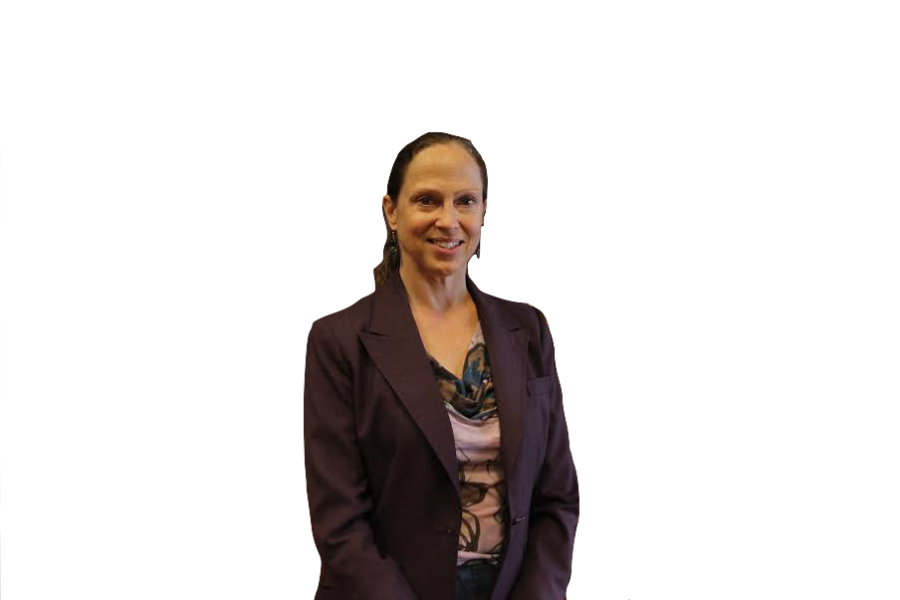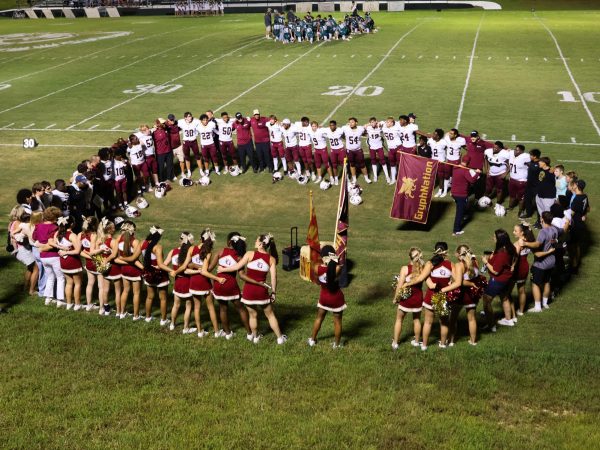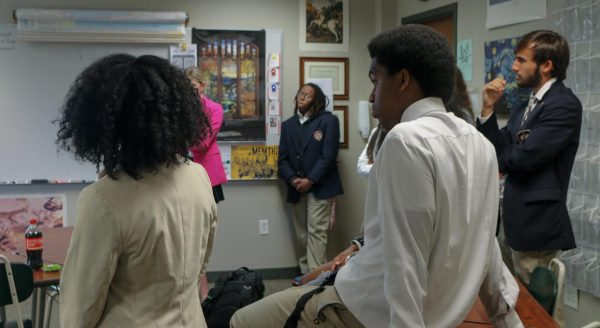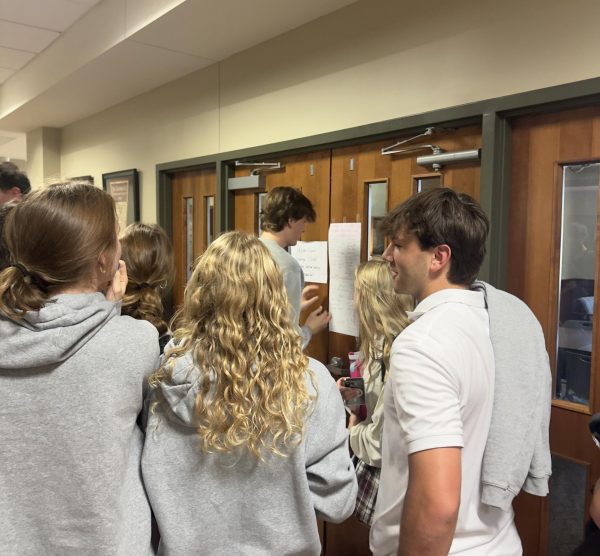Q&A with Deb Ireland
Photo: Carolyn Lane
Ms. Deb Ireland is a U.S. Attorney who specializes in Internet safety. She hosts educational expos for students, teachers and religious organizations that detail the ins and outs of cybercrime and privacy throughout the Memphis area. On Jan. 11, Ms. Ireland came to St. George’s to speak about cyber safety to Collierville campus students.
Q: Why did you decide to become a lawyer with a focus on technology?
A: In law school, they teach how to analyze the law and how to make a legal argument, but they don’t teach about communicating. Those two fit together for me perfectly. The way to explain a complicated thought isn’t as easy as it seems. It just fell into place for me. I was lucky.
Q: How did you have the opportunity to come speak at St. George’s?
A: One of the important things that my office – the U.S. Attorney’s Office – does is prevent crime. It is way better than trying to clean up the mess after it [happens] because nothing ever makes you what you were before something bad happened. We make it a point to go out and share information, hopefully preventing some things. We hope to give people tools that they can use proactively to keep themselves safe and the people that they care about safe.
Q: How would you suggest balancing the risks and the rewards of social media?
A: I think everybody has to decide for themselves, but the biggest two things I can say is that once you share, post or comment, it can’t be undone, and once you share, post or comment, you’re stuck with whatever consequence comes from that. So instead of acting in the moment, even though it’s really fun, take a breath, count to five. It’s like what they used to teach you when you were little about fighting: count to ten and by that time hopefully, you’ve calmed down. We really have to learn to self-filter.
Q: What do companies do with the information they collect about you?
A: They analyze it. They run it through spreadsheets and processing and develop profiles. For example, teenagers in the Mid-South might act differently than teenagers in Northern California, and if they can tell where traffic is coming from, they can use that difference to help fine-tune ad campaigns or market different products. Big data is one of the most valuable commodities, and all that comes from us
Q: So what is the most important lesson that people who weren’t here should know from your speech and your program?
A: There’s nothing private on the internet. Period. Stop. End. We are giving away information that we don’t even realize we’re giving away, and unless we know how the technology works, we’re not able to make truly informed decisions about how we interact online and what platforms we choose to use.
Q: Do you think anything is truly private on the internet anymore?
A: No, it never was. We just let ourselves think that. It is human nature to only see our experiences and assume it’s the same for everybody else. We are not trying to find out stuff [about others that] we shouldn’t know, so we would never assume that a giant internet
Q: Do you have any final comments?
A: The internet’s not evil. It’s just that we need to understand it so that we can use it.












